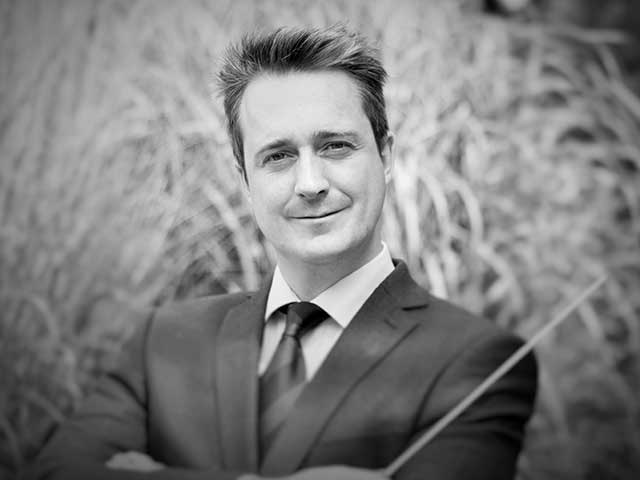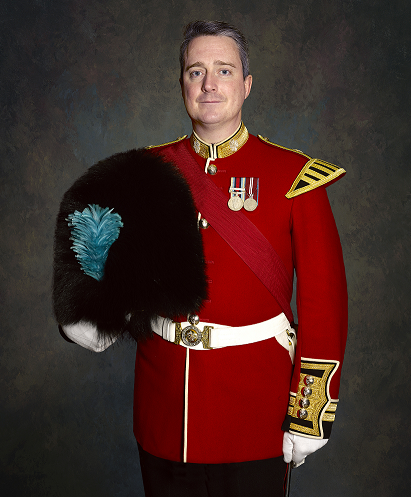
Can you tell 4BR a little about your brass banding background?
I come from Northern Ireland and began to play in bands including Laganvale, who I proudly played with to represent my country at the European Championships in Bergen in 1996.
I moved to Manchester to study with Bill Millar at Chetham’s in 1996 and began playing with Point of Ayr before moving on to Leyland.
After Chetham’s I studied with Steven Mead at the RNCM and continued to play for Leyland before moving on to the YBS Band.
Playing for David King was the pinnacle of my brass band career, and to this day he’s been such an inspiration in my development as a musician. Before joining the Army I was lucky to work with some superb musicians, and this hasn’t stopped as a professional musician either.
What key considerations made you choose a career as a professional musician in CAMUS?
I loved playing the euphonium and wanted to inspire and motivate people through music myself as an occupation if I could.
I didn’t really have the patience back then to teach in a school, as I just wanted to play! I looked into a career in the Armed Forces and the Army in particular, and it seemed perfect for me. It gave me the fantastic opportunity to earn a living playing my euphonium whilst also the chance to develop a conducting career through the Bandmaster route.
It just made complete sense for me to join up, and I’ve never regretted it for one moment.
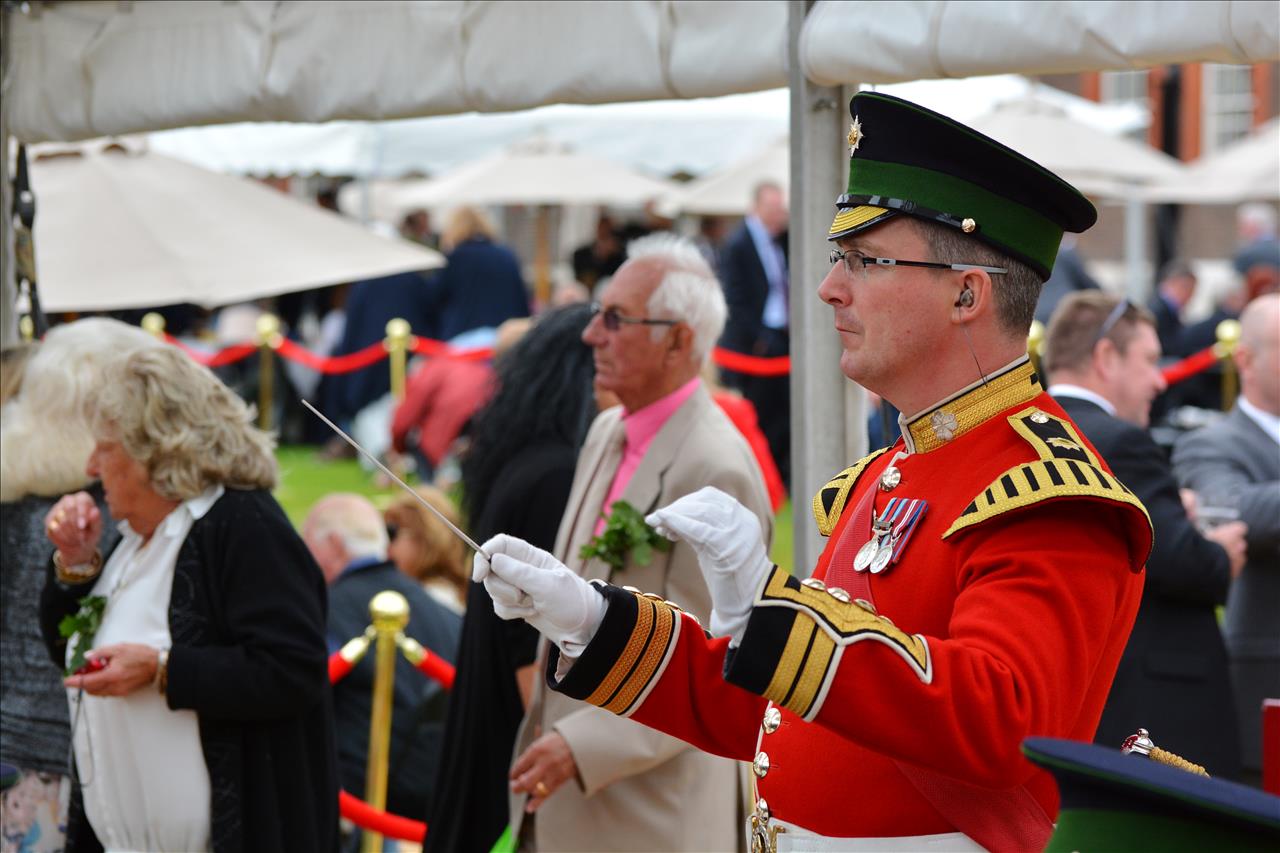
What professional career opportunities has the career in the Army afforded you then?
As a professional musician in the Corps of Army Music I’ve been able to become a Bandmaster, which at the time was an intensive 3 year course covering many aspects of music - but also management and essential military leadership skills.
The Bandmaster Course remains as intensive, although now condensed into roughly one year of study preceded as well as followed by bespoke distance learning.
I’ve also attended courses which have taught me a range of other skills - from course design to validation, assessment criteria to strategic planning, man management etc. It’s as ongoing as you want it to be for your career.
I’ve also attended courses which have taught me a range of other skills - from course design to validation, assessment criteria to strategic planning, man management etc. It’s as ongoing as you want it to be for your career.
I was also deployed to Afghanistan. I was there for 9 months, assisting a course development cell in producing lesson plans which then had to be translated to be delivered to the Afghan National Army’s Officer Cadets. That was an amazing experience.
And what about the musical opportunities?
You get to perform all over the world of course – from the Balkans to Uzbekistan, the USA to the great set piece State occasions here in London.
As a euphonium soloist I performed at the United States Army Band’s Tuba and Euphonium Conference in 2007. I was accompanied by the U.S. Army Orchestra in a concerto by American euphonium player Neal Corwell entitled ‘Of the Water’.
We also undertake so many high profile events and there is such a good mixture of concert work too.
The Irish Guards Band gave the European premiere of Nigel Clarke’s symphony ‘A Richer Dust’, which was an epic project to be part of. I’m also heavily involved with Guards Brass and through our CPD (Continual Professional Development) programme we’ve worked alongside world class musicians such Roger Webster, Gary Curtin, James Fountain, Phil Cobb and Adam Rapa.
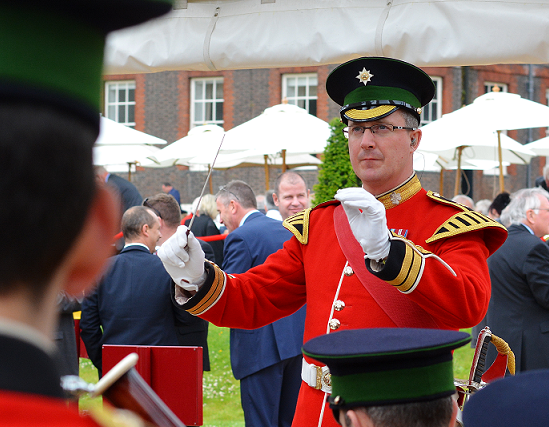
How is CAMUS set up and how do brass bands play a part in it?
CAMUS has 22 Regular Army Bands and 19 Reserve Bands and they are set up as different ensembles, including the Countess of Wessex String Orchestra, specialist contemporary groups, multi-capability bands, wind and symphonic wind bands and brass bands.
This new structure came into place in 2014 and the brass bands were a key part of that. They and the other new ensembles have allowed our organisation to become much more diverse; enabling musicians to specialise at the same time as widening our own appeal.
The brass bands have proven to be a superb recruiting vehicle for CAMUS, and are able to effectively engage with the brass band community, attracting talented musicians in the process such as Ailsa Russell and Christian Dullea for example.
The brass bands have proven to be a superb recruiting vehicle for CAMUS, and are able to effectively engage with the brass band community, attracting talented musicians in the process such as Ailsa Russell and Christian Dullea for example.
How important do you feel is the musical link between CAMUS and the civilian brass banding movement?
The link is important, not just for the brass band movement, but with all musical organisations.
Our musicians readily perform in many different ensembles which allow us to broaden our horizons but also inform others about what we do, inspiring them and perhaps enabling them to consider CAMUS as a viable and rewarding career option.
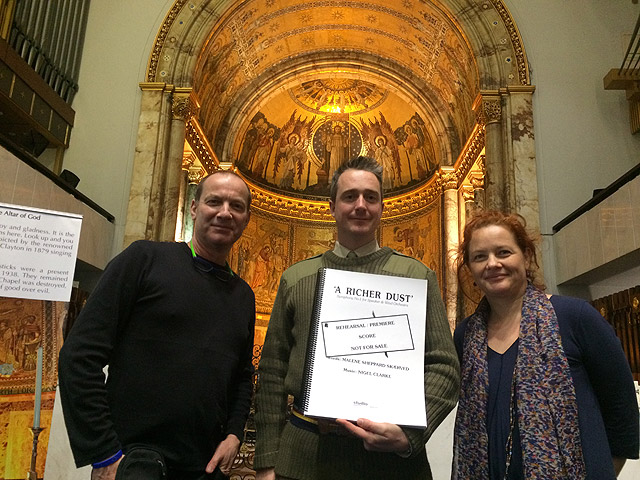
How is it currently maintained and how can it be enhanced further?
We currently have a number of musicians playing with top brass bands, so we try to be as flexible as possible and allow them every opportunity to participate in these external activities.
It is so beneficial for CAMUS to have musicians at the top level in external musical ensembles – and the benefits are reciprocated. It has been such a positive move.
It is so beneficial for CAMUS to have musicians at the top level in external musical ensembles – and the benefits are reciprocated. It has been such a positive move.
Through CPD we are able to work with the banding movement, and we have already enjoyed projects with ensembles such as Tredegar, Canadian Brass, SuperBrass and superb educators and musicians.
What links are you able to maintain with the civilian banding world?
Yes. In my spare time I am the MD of Sandhurst Silver. We have a good mix of ability and enthusiasm and I enjoy the challenge of developing the band in order to perform.
We also have a family home in Lancashire, so when I’m there I’ll keep my lip in by playing with my wife’s band, Morecambe Brass. When the opportunity arises I also relish being able to conduct some of the local bands too. It keeps me perfectly in touch with my roots.
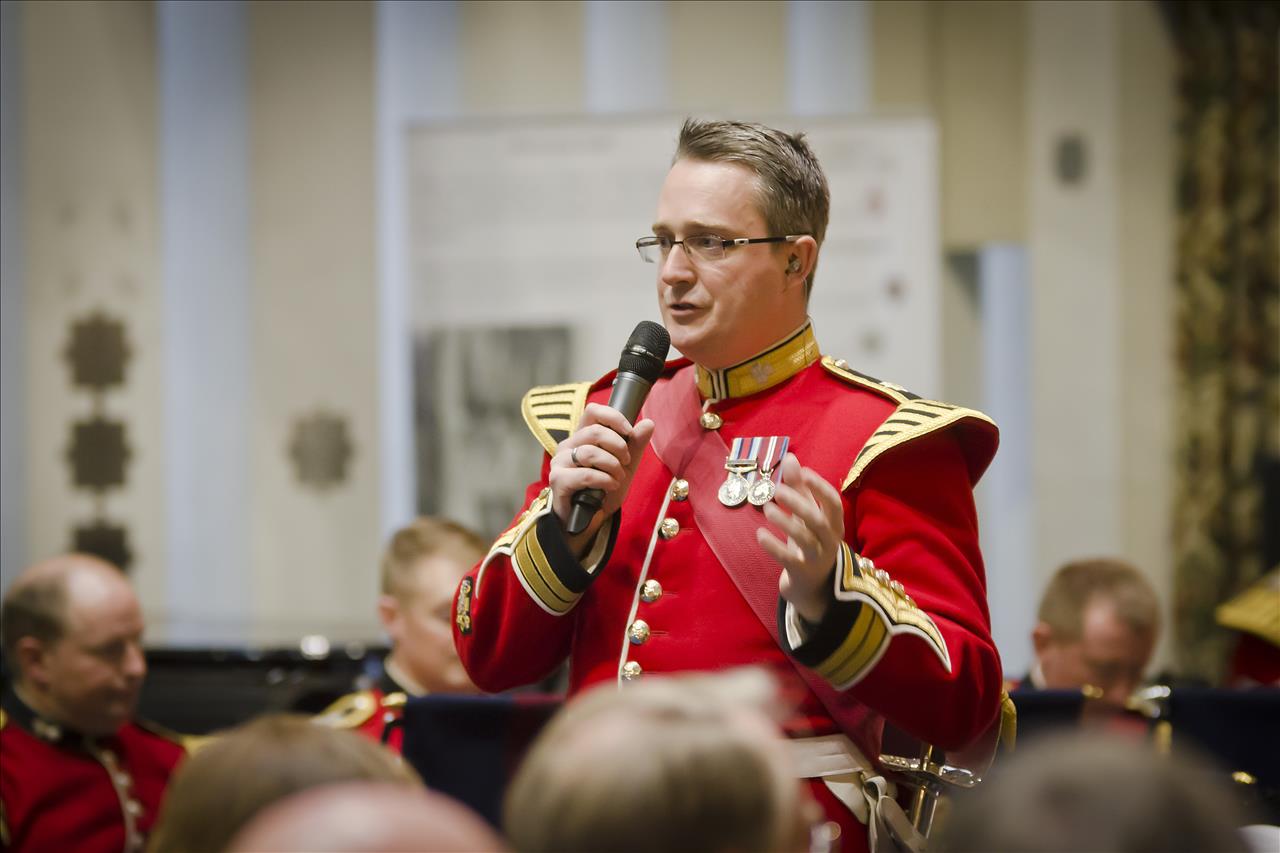
What does the immediate future hold for you and the various CAMUS ensembles?
We have an annual assignments board which can move our musicians around the Corps. This is essential in order to maintain correct instrumental and, or rank, balance in our bands, although it’s also used as a process to move musicians when possible to the posting preference of their choice.
Bandmasters and Directors of Music are no different, and can move bands or to staff appointments at Headquarters or the Royal Military School of Music. We will have to see how that may affect me this time.
The ultimate aim is to reach the top, as I’m highly motivated to fulfil an aspiration of becoming a Director of Music. It’s one of the motivating factors for me, so I’ll keep working hard in order to realise the ambition.
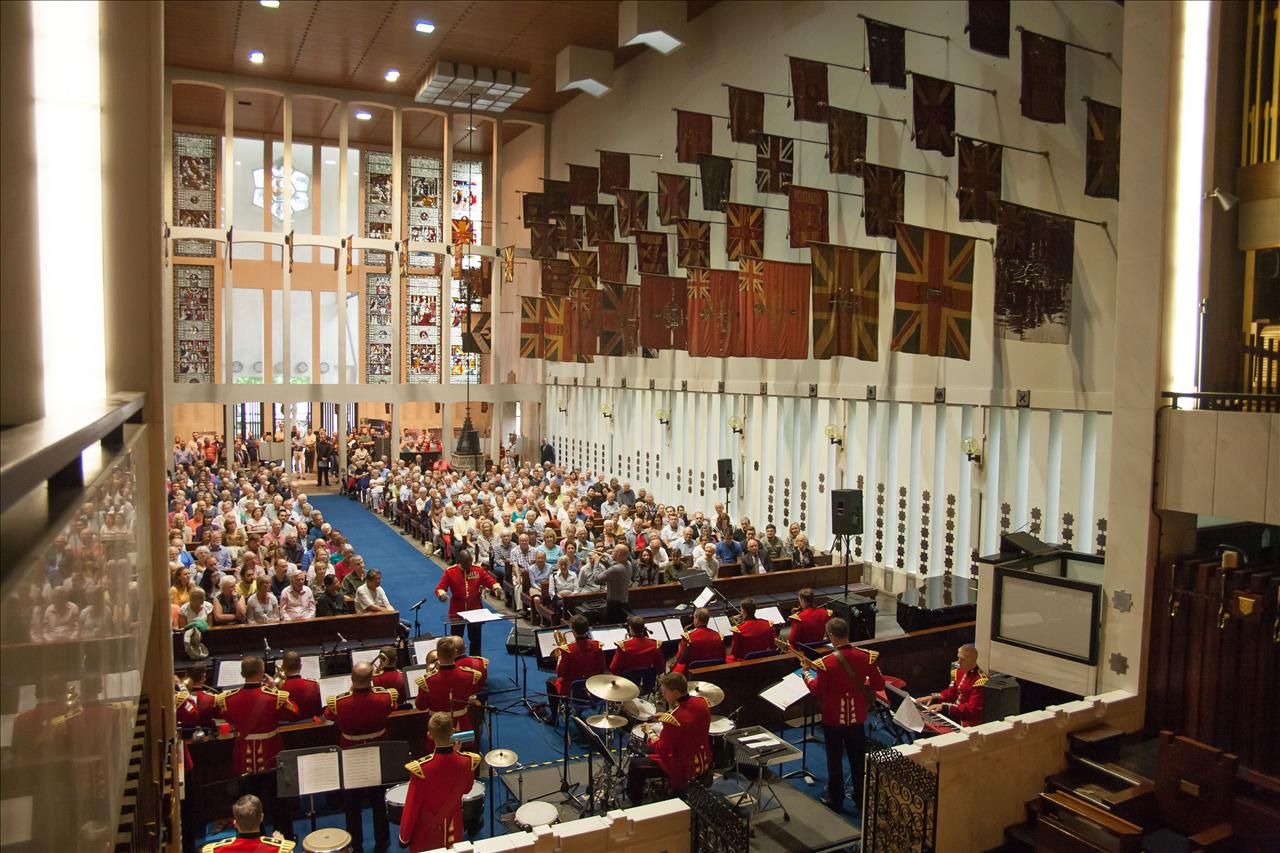
What have been some of the highlights of your time as a professional musician?
Performing in Washington DC with the US Army is a cherished memory, as was being a member of the old British Army Brass Band.
Since becoming a Bandmaster and particularly the Bandmaster of the Irish Guards I’ve performed at so many high profile events – from standing on the pitch at a packed out Olympic Park Stadium or Twickenham playing the anthems, it’s always been an amazing experience.
However, I’m particularly proud to have taken part in the Trooping of the Colour and Cenotaph parades. The pride as well as the emotion of these events cannot be replicated.
However, I’m particularly proud to have taken part in the Trooping of the Colour and Cenotaph parades. The pride as well as the emotion of these events cannot be replicated.
What three elements of advice would you give to someone considering a future as a professional musician in CAMUS?
Absolutely consider it, be prepared and stay focused.
Firstly, I would say that this is an excellent professional career and with so many different benefits.
You will make friends for life, have access to exceptional tuition, work alongside elite musicians daily and often through CPD. You also get top class medical and dental cover and heavily subsidised accommodation. My musicians live in Knightsbridge!
You will also get well paid to do what you love - making music and performing.
Secondly: Prepare yourself to the best of your ability both musically and physically.
The audition prep is crucial and will ensure you are on track to perhaps qualifying for the top Golden Hello bonus of £10,000!
Link up with a CAMUS band and use them to help you by getting along for ‘real time’ career insight and advice, audition preparation and an initial sense of belonging. The audition prep is crucial and will ensure you are on track to perhaps qualifying for the top Golden Hello bonus of £10,000!
Be physically prepared as at selection, Phase 1 Training and throughout your career you will have to meet various fitness standards.
Know what you want to achieve and be determined to succeed.
Lastly: Stay focused and motivated!
Know what you want to achieve and be determined to succeed. I always remember the wind, brass and percussion department at the RNCM being told that not many of us would get work immediately as professional musicians.
I didn’t want that to be me. I wanted to carry on doing what I was being taught to do; make music and perform! I was motivated to succeed, chose this career path and have loved every moment of it.
To find out more about a career in the Corps of Army Music, go to:
https://www.army.mod.uk/rolefinder/role/145/musician
To find out more about the Golden Hello, go to:
http://www.army.mod.uk/music/23288.aspx



